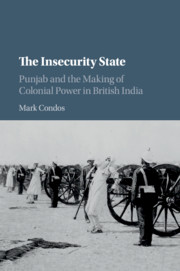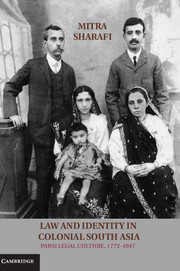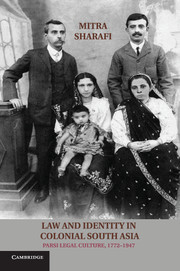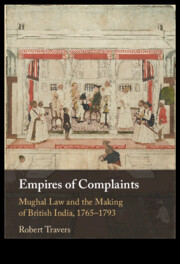The Insecurity State
In this provocative new work, Mark Condos explores the 'dark underside' of the ideologies that sustained British rule in India. Using Punjab as a case study, he argues that India's colonial overlords were obsessively fearful, and plagued by an unreasoning belief in their own vulnerability as rulers. These enduring anxieties precipitated, and justified, an all too frequent recourse to violence, joined with an insistence on untrammelled power placed in the hands of the executive. Examining how the British colonial experience was shaped by a chronic sense of unease, anxiety, and insecurity, this is a timely intervention in debates about the contested project of colonial state-building, the oppressive and violent practices of colonial rule, the nature of imperial sovereignty, law, and policing and the postcolonial legacies of empire.
- A provocative, new view of the British Empire in India
- Based on rich archival research
- Contributes to the major debates on colonial state-building, colonial violence, imperial sovereignty, and postcolonial legacies of empire
Reviews & endorsements
'Mark Condos’s book offers a compelling insight into the driving principles underlying the British colonial state in Punjab and, in doing so, indicates some wider truths about the nature of imperial societies more broadly.' Catherine Coombs, The English Historical Review
Product details
May 2020Paperback
9781108407014
272 pages
150 × 230 × 10 mm
0.41kg
11 b/w illus.
Available
Table of Contents
- Introduction: fear, panic, and the violence of empire
- 1. Colonial insecurity in early British India, 1757–1857
- 2. Re-assessing the 'garrison state': pacification and colonial disquiet in Punjab
- 3. Law, the Punjab school, and the 'kooka outbreak' of 1872
- 4. Frontier terror and the Murderous Outrages Act of 1867
- 5. Imperial recruiting and imperial anxieties, 1870–1920
- Conclusion: colonial vulnerability and the insecurity of empire
- Epilogue: the insecurity state today.









